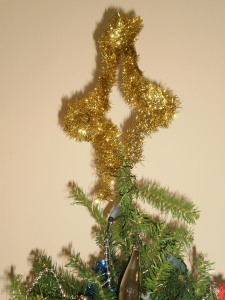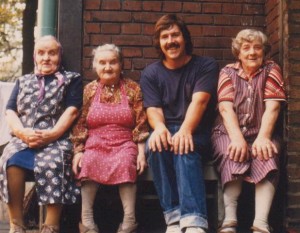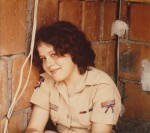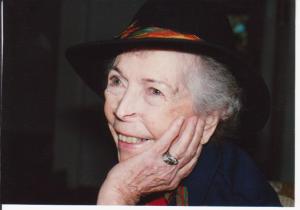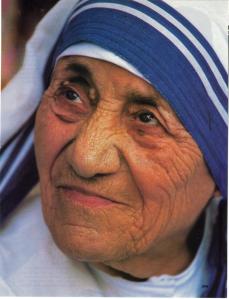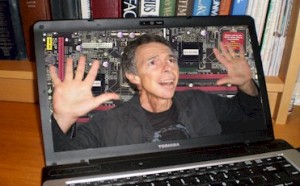Ask anyone what they think about Jesus and most of the time you'll get answers like these: love, grace, mercy, forgiveness. Ask those same people what they think about Christians and quite often you'll get a different answer: condemnation, hypocrisy, hatred, division. What has happened? Why does Christianity as a religion provoke such a different response than the founder?
Have we as Christians turned Jesus from a blessing into a curse, not by our association with Him, but by His association with us?
To me, what gives Christianity a bad name are the protests, lectures, music videos of hatred, the glares of disgust and disapproval. Does our world have problems? Of course. Are there evils worth fighting? Absolutely. Combat, however, doesn't change people. Jesus does. He changes hearts. He reconciles people with God. Which in turn changes actions. Christianity, however, has too often emphasized a strict moral culture that focuses more on external actions than internal values. In other words, we've got it bass-ackwards.
That kind of church culture is what grinds a lot of people. Don't get me wrong: it's awesome hanging out with people who are bursting with love and joy. Enthusiastic people who help one another. Who reach out to others. People who laugh when you laugh. Who grieve when you grieve. Who accept you as you are. Who take an interest in you. Who want your involvement with them. People who bring you food when you're sick. People you can trust. People who become family because of your common bond of faith. That is church at its best, and there are huge numbers of Christians who personify those qualities.
But sometimes church becomes a sanitized culture that refuses admission to those who are different. People who don't fit the mold. I attended a church once that declared a ban on wearing shorts. It was stinking hot back where they were in summertime, but rules were rules and shorts were not allowed. Conform or get out. Never mind those who had already left because they were not allowed to drink "demon" alcohol.
That kind of squeaky clean culture is not what Christianity is all about. Scottish clergyman, Lord George Fielden MacLeod (1885-1991) said it this way: "Jesus was not crucified between two candles, but on a cross between two thieves. On the town garbage heap. At a crossroads so cosmopolitan they had to write the charge against him in three languages. At the kind of place where cynics talk smut, and thieves curse and soldiers gambled. That is where He died, and what He died about. And that is where churchmen should be, and what churchmen should be about."
 To do this, you've got to be made of tough stuff. Jesus was. He wasn't the cuddly stuffed doll we've been led to believe he was. Nor were his followers. They were rough, rugged, flawed individuals who defied the world rather than chased it, as is the case today, where outward affluence is valued more than inner character. I wonder: would that apostolic vagrant, Paul, be welcomed in church as a teacher today? Would Jesus? Maybe...if they wore long pants.
To do this, you've got to be made of tough stuff. Jesus was. He wasn't the cuddly stuffed doll we've been led to believe he was. Nor were his followers. They were rough, rugged, flawed individuals who defied the world rather than chased it, as is the case today, where outward affluence is valued more than inner character. I wonder: would that apostolic vagrant, Paul, be welcomed in church as a teacher today? Would Jesus? Maybe...if they wore long pants.
The fact is: Jesus changed lives by hanging out with people on the street. He partied with them: "Out of wine? Here, let me make some for you." (And we're not talking grape juice, either, but the good stuff. Better than a South Australian shiraz, if you can imagine that.) He associated with drunkards and prostitutes. With (gasp) non-Christians. With the reviled of society. With the sick. With atheists. With people of all religions, at the crossroads of the world. With people in need.
I once spent two years in seminary -- aka "cemetery" -- and found it so distasteful and lifeless I dropped out. Theology, I discovered, doesn't change lives. A changed life may decide to study theology, but theology itself doesn't change lives. Love does. That's why Jesus was such a revolutionary. He was, quite literally, God among us. And in that, showed us what God was all about.
Tony Campolo is the associate pastor of the Mount Carmel Baptist Church in West Philadalphia, and an emeritus professor of sociology at Eastern University. On that campus is the Campolo School of Social Change. It serves inner city schools as well as AIDS hospices and Christian service programs in Haiti, the Dominican Republic, Africa, and Canada.
When Campolo gives speeches, he sometimes opens them this way: "I have three things I'd like to say. First, while you were sleeping last night, 30,000 kids died of starvation from diseases related to malnutrition. Second, most of you don't give a shit. [And third] What's worse is that you're more upset with the fact that I said shit than the fact that 30,000 kids died last night."
That kind of coarse language might offend people, and that's exactly my point: quit being offended about the stuff that doesn't matter and start caring more about people. Incidentally, the apostle Paul beat Campolo to the punch when he said, "More than that, I count all things to be loss in view of the surpassing value of knowing Christ Jesus my Lord, for whom I have suffered the loss of all things, and count them but shit in order that I may gain Christ (Philippians 3:8).
Years ago, I belonged to a church that wanted to have a foot washing service for members, who were invited to bring along friends and neighbors. Church leaders wanted to do it because Jesus once washed the disciples' feet, thus demonstrating how Christians should serve others. I agreed with their motivation but suggested they wash cars instead. To me, that was meeting the needs of people in our area. My idea was shot down. It wasn't spiritual/biblical enough. The foot washing went ahead and was poorly attended. Friends and neighbors were simply not interested.
I'm not sure how to end this blog, because I don't pretend to have all the answers. And what is right for me may not be right for you. I do know when I decided to write mainstream fiction and not Christian fiction, I caught some flack from a few Christians. But I have never regretted my decision. I love gutsy non-conformist lovers of God who enjoy a stiff tequila or a swig of shiraz. People of character and integrity who live and die defending the lives of others. That is who Jesus was (okay, without the tequila, although I've toasted Him with blue agave on numerous occasions). And those are the characters you'll meet in my books.
Now, if only they'll hang out with me wearing these baggy cargo shorts...
